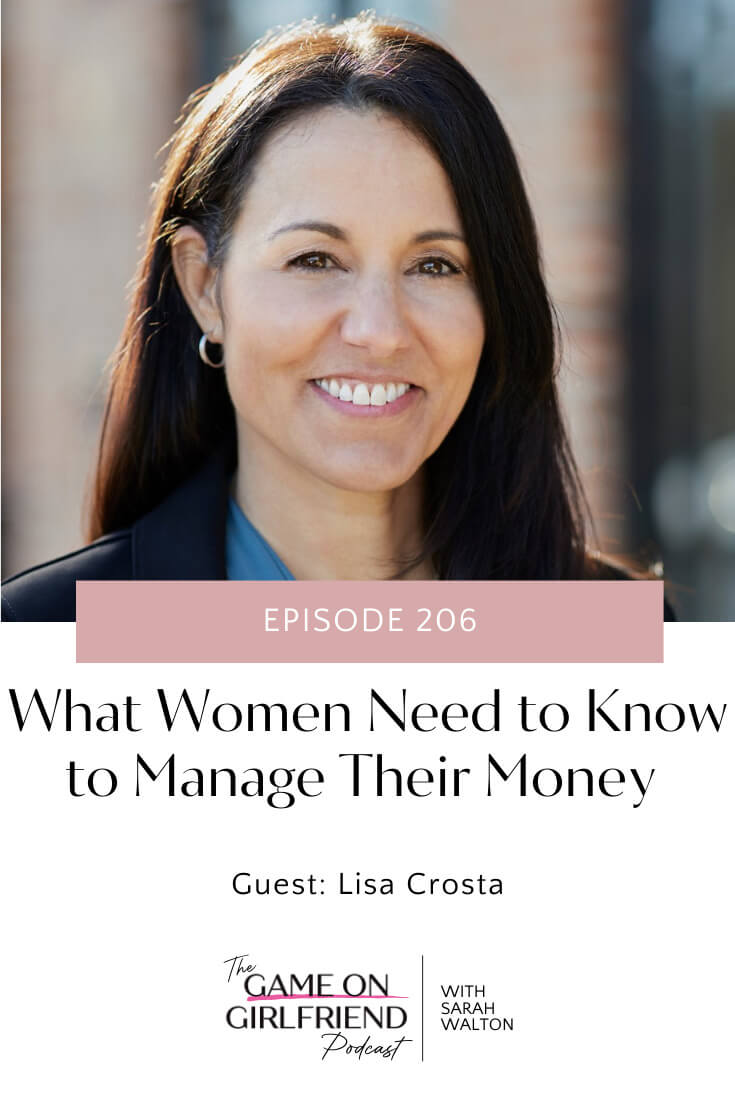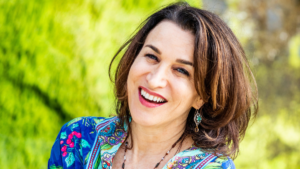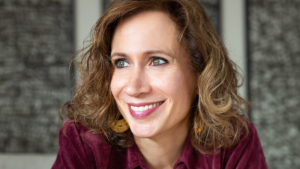Episode 206: What Women Need to Know to Manage Their Money With Lisa Crosta

Money can be fun! If you're afraid to hire a financial planner, you're going to be so happy to meet Lisa Crosta. You don't have to be afraid to talk about money, and today, we dive into what can happen when women get clarity about money management.
Lisa decided to become a certified professional accountant (CPA) because she wanted to work with people. She recognized finances can be so confusing; there's so much jargon and misinformation. Now, she’s able to marry her love of math with people. She is the Director of Wealth Management at BPP Wealth Solutions, where her all-women team helps clients better understand their financial picture so they can achieve their dreams.
Learning the value of money
Money is the most powerful tool we have access to, but for the most part, no one teaches us how to use it. Lisa says if she could change one thing about the conversation around money, it would be to have parents talk to their children about it.
“This is everyday math that makes sense with what we do with life. It’s not disassociated from the world,” says Lisa. “And when you start talking to people about money, they open up to you about incredible things.”
She says there’s rarely a discussion about the concept of how much things cost and it can be confusing for kids. If a parent says no to buying ice cream for their child; it might be because it’s too close to dinnertime rather than the item being expensive, compared to being at a concert and your child asking for a $100 sweater, which might be too expensive.
Lisa says it’s important to use money appropriately as a tool, not as an excuse when you want to discourage behavior. She suggests giving examples like, a vacation being worth a month of work.
Once children start working, it becomes more obvious. They can see how much you have to work to pay for something.
Removing morality from money
The value of money being brought in and then consciously making the decisions about how to manage it is important. There is a morality that we assign to money, we put emotion into it.
You get to choose where to put it next, whether it’s in the bank or a vacation. Where do you put the dollars earned based on what you love?
Lisa says many of her clients are initially nervous about sharing their cashflow with her. Looking at the money coming in and how much is being spent makes people think they’re in trouble and that they will have to budget.
“It’s not so much what you’re spending on, it’s what’s the net at the end of the month,” says Lisa. “And the net getting you to where you want to be.”
Some people want to save most of their money, others are fine to put their 401K aside and they spend the rest. Financial planners give them projections – there are a lot of assumptions, but they’re good numbers. You can see that if this is how live, this is where you’ll be at 65. Lisa says, the projection may or may be good, but don’t you want to know?
“It’s not about who has the biggest pile [of money],” says Lisa. “It’s can you do what you want to do with what you have.”
What do you want to do with money and what do you want to accomplish in your life? You don’t want to go through life saying no, no, no. But when you say yes to certain things, there’s a balance. Maybe you buy that $300 cardigan that you love and will last the next 30 years, and you wear an $8 T-shirt underneath.
Read more: How to Talk About Money as a Family Unit
Generational wealth
Lisa says she’s worked on generational wealth with some families, and she has started working with the younger generation first. Oftentimes, the older generation didn’t talk about money. The conversation can shift to the goals of the family based on their core values, which might be giving back to the community or getting an education, for example.
She says when both parents are involved with the money, it's better. Tasks might get divided. And for whatever reason, the women may do the budgeting and the bill paying, but the men are doing the investments.
Sometimes, it keeps the women out of the loop. When Lisa works with them, she educates them so they understand what they own, and why they own it.
“I find the women that choose not to get married and are managing themselves are fine. It's when they're relying on somebody else, and then they end up with divorce or death. They get sideswiped,” says Lisa.
At some point, you will manage that money, and understanding the various assets, and how they work from a tax standpoint and an inheritance standpoint is key. Step one is to understand what you own, how it’s titled, and how it’s invested.
Common money misunderstanding
Lisa says understanding what you own really is the most important.
“You can't put everything in a drawer and wait till you're 65 and pull it out,” she says.
She suggests hiring a professional and taking the time to figure it out. Tax laws have gotten complex. There used to be just one retirement account – pensions. Now, there are different rules for many different types of retirement accounts. In managing money, knowledge truly is power.
Special offer for listeners
Use coupon code Sarah10 to get 10% off financial planning services with BPP Wealth Solutions. This is an all-women team who guides their clients through the confusion of complex financial jargon.
Binge More Game On Girlfriend™ Podcast Episodes

Freedom in your business starts here. Make the revenue that allows you to finally exhale.
Download my Freedom Calculator and discover exactly how much your business needs to make so you can be truly free.




